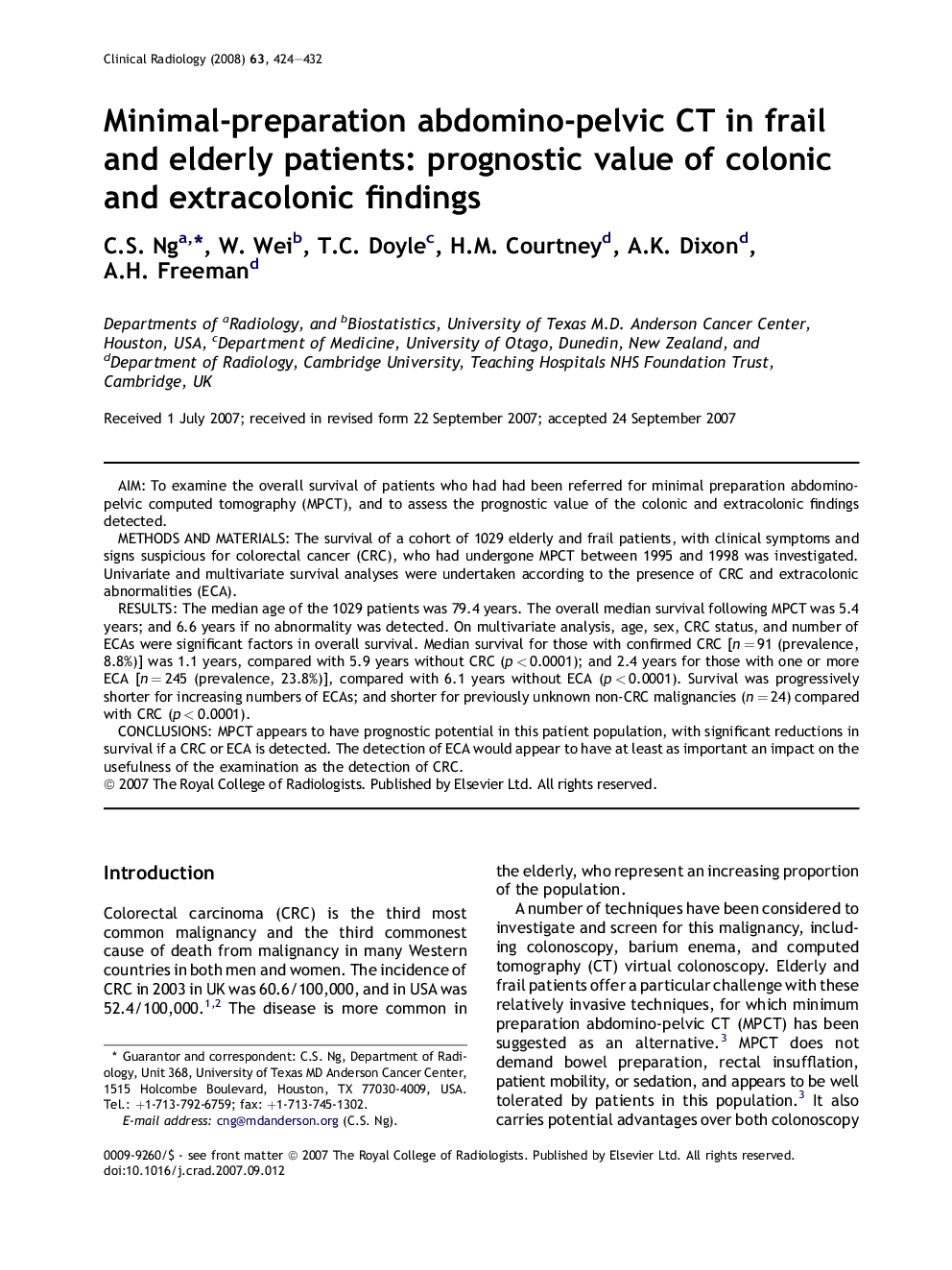| Article ID | Journal | Published Year | Pages | File Type |
|---|---|---|---|---|
| 3983100 | Clinical Radiology | 2008 | 9 Pages |
AimTo examine the overall survival of patients who had had been referred for minimal preparation abdomino-pelvic computed tomography (MPCT), and to assess the prognostic value of the colonic and extracolonic findings detected.Methods and materialsThe survival of a cohort of 1029 elderly and frail patients, with clinical symptoms and signs suspicious for colorectal cancer (CRC), who had undergone MPCT between 1995 and 1998 was investigated. Univariate and multivariate survival analyses were undertaken according to the presence of CRC and extracolonic abnormalities (ECA).ResultsThe median age of the 1029 patients was 79.4 years. The overall median survival following MPCT was 5.4 years; and 6.6 years if no abnormality was detected. On multivariate analysis, age, sex, CRC status, and number of ECAs were significant factors in overall survival. Median survival for those with confirmed CRC [n = 91 (prevalence, 8.8%)] was 1.1 years, compared with 5.9 years without CRC (p < 0.0001); and 2.4 years for those with one or more ECA [n = 245 (prevalence, 23.8%)], compared with 6.1 years without ECA (p < 0.0001). Survival was progressively shorter for increasing numbers of ECAs; and shorter for previously unknown non-CRC malignancies (n = 24) compared with CRC (p < 0.0001).ConclusionsMPCT appears to have prognostic potential in this patient population, with significant reductions in survival if a CRC or ECA is detected. The detection of ECA would appear to have at least as important an impact on the usefulness of the examination as the detection of CRC.
